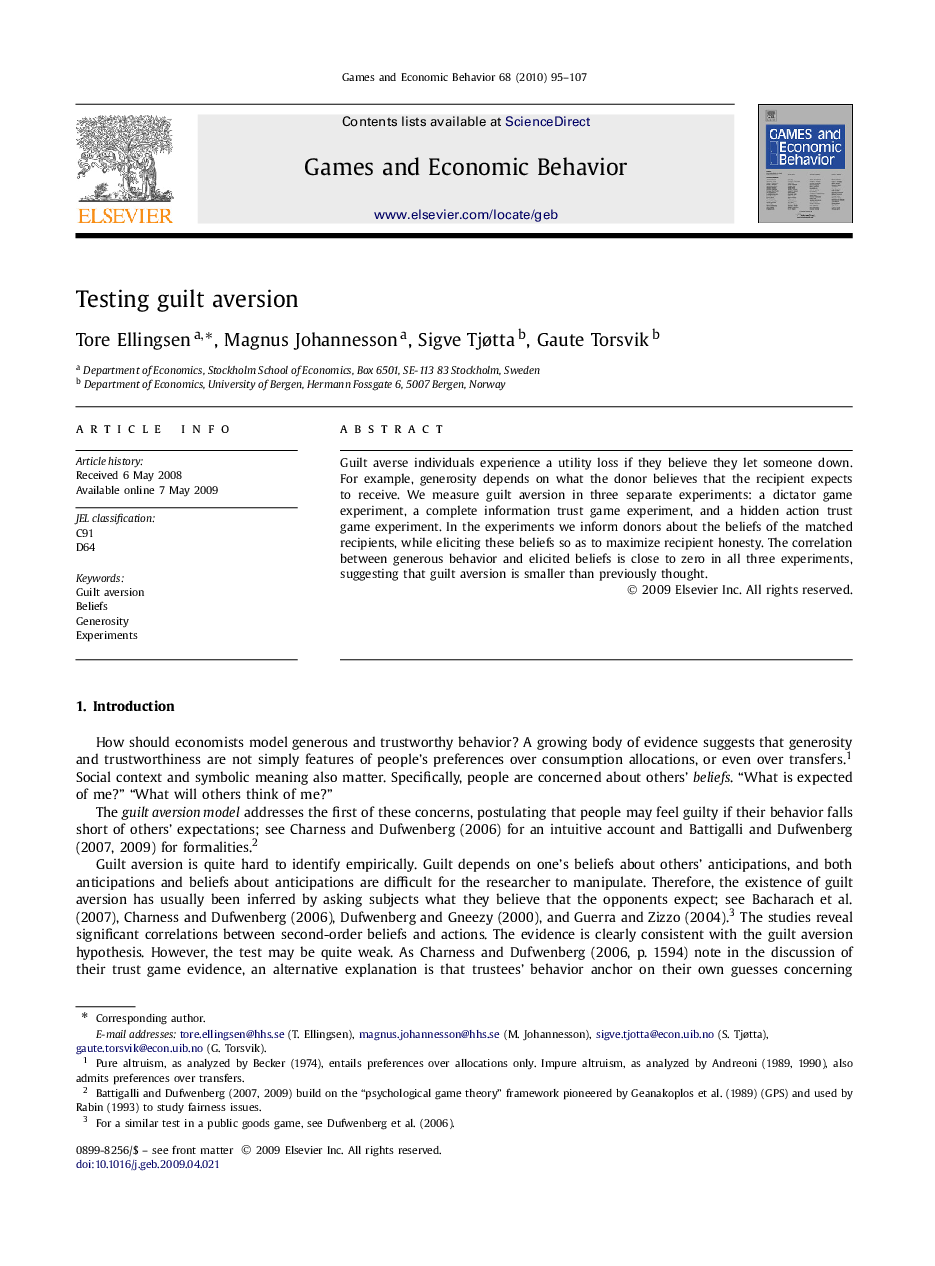| Article ID | Journal | Published Year | Pages | File Type |
|---|---|---|---|---|
| 5072445 | Games and Economic Behavior | 2010 | 13 Pages |
Abstract
Guilt averse individuals experience a utility loss if they believe they let someone down. For example, generosity depends on what the donor believes that the recipient expects to receive. We measure guilt aversion in three separate experiments: a dictator game experiment, a complete information trust game experiment, and a hidden action trust game experiment. In the experiments we inform donors about the beliefs of the matched recipients, while eliciting these beliefs so as to maximize recipient honesty. The correlation between generous behavior and elicited beliefs is close to zero in all three experiments, suggesting that guilt aversion is smaller than previously thought.
Related Topics
Social Sciences and Humanities
Economics, Econometrics and Finance
Economics and Econometrics
Authors
Tore Ellingsen, Magnus Johannesson, Sigve Tjøtta, Gaute Torsvik,
